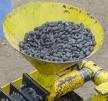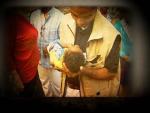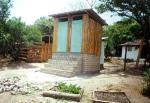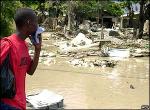Haiti Biofuels Update (4/19/2008)
 With the Prime Minister of Haiti having been voted out as a result of the recent food riots, expect biofuels to get put on the backburner for a while – at least as far as the government is concerned. The new Prime Minister will need to assemble a new Cabinet and we hope that the Ministers of Finance, Agriculture, and Energy will all take a close look at the potential of biofuels. In the meantime, the non-governmental organizations keep working away. A successful war on poverty in Haiti must be fought on different fronts at the same time, chief of which are food security and energy independence.
With the Prime Minister of Haiti having been voted out as a result of the recent food riots, expect biofuels to get put on the backburner for a while – at least as far as the government is concerned. The new Prime Minister will need to assemble a new Cabinet and we hope that the Ministers of Finance, Agriculture, and Energy will all take a close look at the potential of biofuels. In the meantime, the non-governmental organizations keep working away. A successful war on poverty in Haiti must be fought on different fronts at the same time, chief of which are food security and energy independence.












